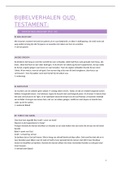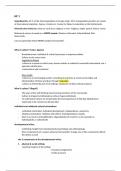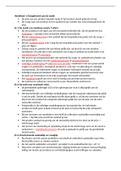Löhndorf, B. & Diamantopoulos, A. (2014). Internal branding: social identity and social
exchange perspectives on turning employees into brand champions. Journal of Service
Research, 17, 310- 325
Introduction
Strong brands are vital to the success of service companies: help reduce perceived risk and build
trust. Especially in service brands, employees are important in building a strong brand: they must
become brand champions: to motivate them to help build and strengthen the brand image of their
organization. Organizational behavior depends largely on the psychological relationship of employee
with the company. Theoretical perspectives about:
• Social identity: based on social identity processes, employees’ organizational identification
(OI) has been found to be a powerful predictor of various behaviors, such as performance,
turnover intentions, and organizational citizenship behaviors.
• Social exchange: similar relationships seemingly result from employees’ (social) exchange
relationships with employers, which are manifested as perceived organizational support
(POS).
➔ How does the employee-organization relationship affect an employee’s motivation to build
and strengthen the brand image of the organization? And how is the employee organization
relationship (and OI in particular) affected by internal branding efforts? We propose OI as a
motivational mediator between internal branding outcomes and employee brand-building
behaviors and POS as an alternative, exchange-based motivation.
Employee brand-building behaviors
Employee behaviors (both on and off the job) that contribute to an organization’s branding efforts:
who are called ‘brand champions’. Four brand-building behaviors:
• Brand-congruent behavior: the degree to which an employee’s personal communication and
appearance in a customer interaction is in line with the organization’s brand identity.
• Customer-oriented behavior: the degree to which employees try ‘‘to help their customers
make purchase decisions that will satisfy customer needs’’.
• Participation in brand development (on the job): a proactive employee behavior that goes
beyond the job description and indicates active, responsible involvement in nurturing and
building the organization’s brand.
• Positive word of mouth
(WOM) (off the job):
personal advocacy of the
organization’s brand,
which provides a credible
form of advertising
among both current and
potential customers.
➔ In a service context, these
behaviors can be
classified according to
whether they take place
on (off) the job and within
(outside) a customer
interaction.
exchange perspectives on turning employees into brand champions. Journal of Service
Research, 17, 310- 325
Introduction
Strong brands are vital to the success of service companies: help reduce perceived risk and build
trust. Especially in service brands, employees are important in building a strong brand: they must
become brand champions: to motivate them to help build and strengthen the brand image of their
organization. Organizational behavior depends largely on the psychological relationship of employee
with the company. Theoretical perspectives about:
• Social identity: based on social identity processes, employees’ organizational identification
(OI) has been found to be a powerful predictor of various behaviors, such as performance,
turnover intentions, and organizational citizenship behaviors.
• Social exchange: similar relationships seemingly result from employees’ (social) exchange
relationships with employers, which are manifested as perceived organizational support
(POS).
➔ How does the employee-organization relationship affect an employee’s motivation to build
and strengthen the brand image of the organization? And how is the employee organization
relationship (and OI in particular) affected by internal branding efforts? We propose OI as a
motivational mediator between internal branding outcomes and employee brand-building
behaviors and POS as an alternative, exchange-based motivation.
Employee brand-building behaviors
Employee behaviors (both on and off the job) that contribute to an organization’s branding efforts:
who are called ‘brand champions’. Four brand-building behaviors:
• Brand-congruent behavior: the degree to which an employee’s personal communication and
appearance in a customer interaction is in line with the organization’s brand identity.
• Customer-oriented behavior: the degree to which employees try ‘‘to help their customers
make purchase decisions that will satisfy customer needs’’.
• Participation in brand development (on the job): a proactive employee behavior that goes
beyond the job description and indicates active, responsible involvement in nurturing and
building the organization’s brand.
• Positive word of mouth
(WOM) (off the job):
personal advocacy of the
organization’s brand,
which provides a credible
form of advertising
among both current and
potential customers.
➔ In a service context, these
behaviors can be
classified according to
whether they take place
on (off) the job and within
(outside) a customer
interaction.










